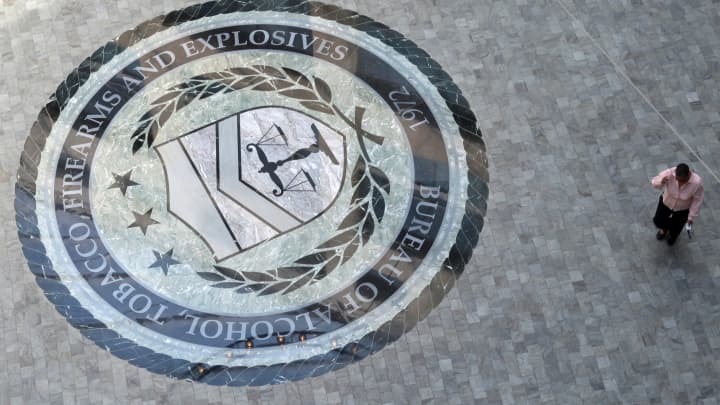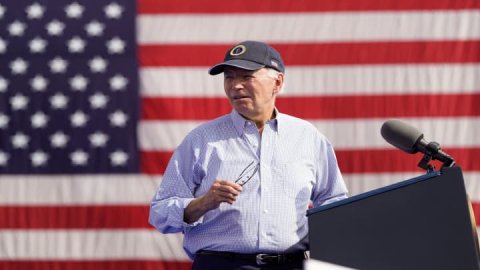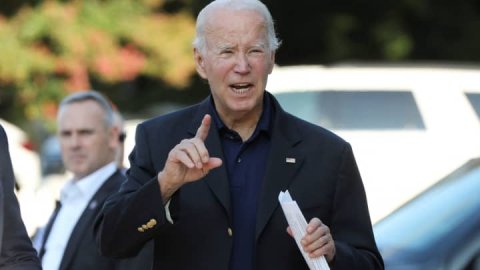
WASHINGTON — The Biden administration announced Thursday that it is proposing a rule to eliminate the so-called gun show loophole — one of the biggest attempts to regulate the sale of firearms in years.
The administration said that new language in a passed last year by Congress after the Uvalde school shooting is empowering it to take the action, though Second Amendment activists are likely to challenge the move in court.
The Bureau of Alcohol, Tobacco, Firearms and Explosives is proposing a regulation that would essentially say that anyone who deals in firearms for profit must get a federal license — and conduct criminal background checks — regardless of whether they sell the guns in brick-and-mortar stores, gun shows, flea markets or on the internet. The new rule will go through the federal rulemaking process.
Attorney General Merrick Garland said in a statement Thursday that the move is a result of the passed by Congress last year.
"The Bipartisan Safer Communities Act was passed by Congress to reduce gun violence, including by expanding the background checks that keep guns out of the hands of criminals," he said. "This proposed rule implements Congress's mandate to expand the definition of who must obtain a license and conduct a background check before selling firearms."
The "gun show loophole" has been cited for years as a major hole in the federal background check system, allowing a vast number of private sales without background checks. The ATF currently licenses about 80,000 brick-and-mortar gun dealers, but gun sales are increasingly taking place that system, free of background checks.
Earlier this year, Biden designed to expand background checks. It directed Garland to clarify the statutory definition of who is "engaged in the business" of selling firearms, an authority an administration official said was detailed in the bipartisan gun law.
More from NBC News:
NBC News last year about some of the provisions of the law that led to Thursday's proposed rule. At the time, however, sources close to the negotiations behind the legislation tempered expectations that it could close the gun show loophole or have a significant effect on the sale of guns online, although they hoped it would bolster enforcement and oversight of the firearms market.
The sources said they had in mind the shooter in Midland-Odessa, Texas, who killed eight people in 2019 with a gun that he bought through a private sale. He had previously failed a background check from a licensed gun seller and was not allowed to buy a weapon.
Biden in June, a year after he signed it into law, saying that it was already saving lives.
The president said the law has allowed the Justice Department to run enhanced background checks through the FBI on adults under 21 who try to buy firearms. It has also provided funding to states to expand the so-called red flag laws that allow courts to temporarily remove firearms from people deemed a danger to themselves or others. And it has provided money to states to boost mental health services, especially for young people. Biden also noted that the law closed the so-called boyfriend loophole by keeping guns away from unmarried dating partners convicted of abuse.
Biden has long made it a priority to enact policies focused on curbing gun violence. He and then-President Barack Obama attempted to push Congress to pass such measures, and the closest it came was in 2013, a few months after the mass shooting at Sandy Hook Elementary School in Newtown, Connecticut. The Senate fell six votes short of advancing a bill by Pat Toomey, R-Pa., and Joe Manchin, D-W.Va., that would have required background checks in all commercial gun sales.
Since becoming president, while still pressuring Congress to pass legislation, Biden has also used his executive authority to try to reduce gun violence, although he faces limits. He has in the wake of several mass shootings.
There's little chance of such a measure passing through both chambers of Congress. Republicans narrowly control the House, and Democrats have a thin majority in the Senate, meaning they would need substantial Republican support to overcome a filibuster.




